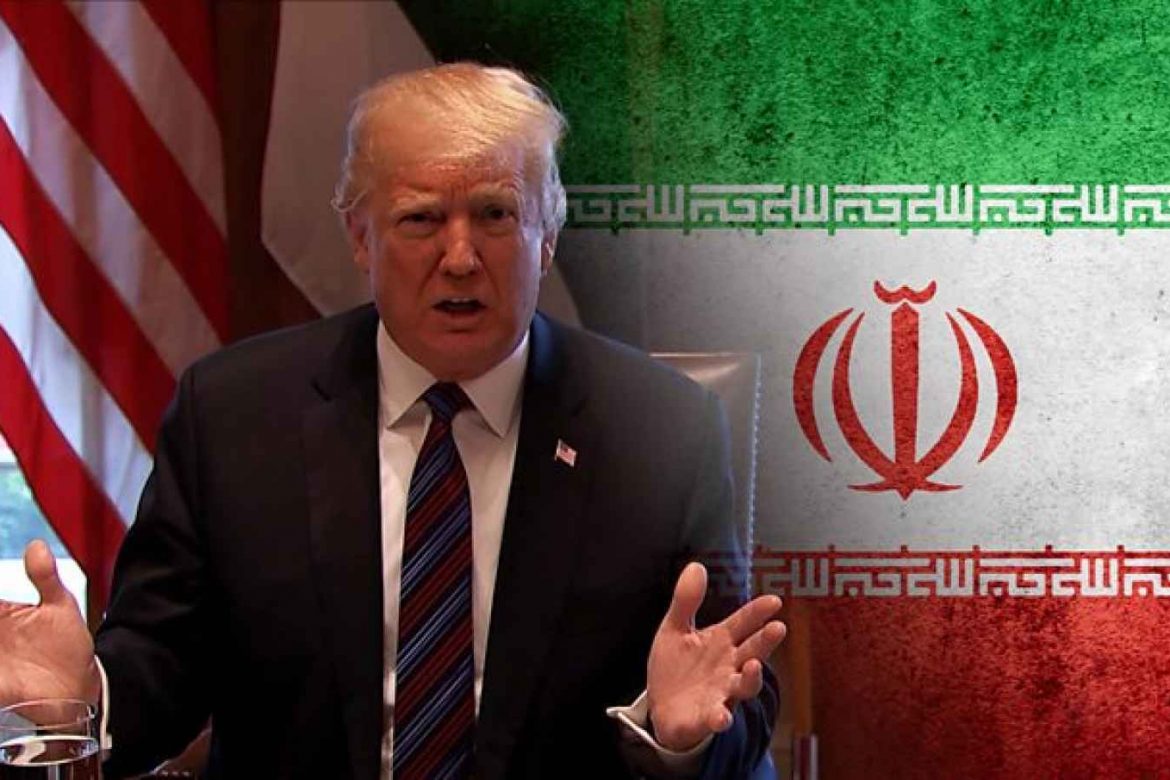Crush them with sanctions till they scream no more…
I’ve long advocated for the blockading of Iranian oil tankers from foreign ports where it refines its oil into gasoline meant for domestic consumption (they’re able to refine but a small portion of what their economy actually needs), Codeville’s suggestion appears to be the better of the two options.
Because America is the world’s sine qua non economic power, U.S. “secondary sanctions”—meaning we will not trade with anyone who trades with the target country—are potentially deadlier than atom bombs. Trump added secondary financial sanctions as part of his revocation of Obama’s “Iran deal,” reducing Iran’s oil sales to a trickle. Compared to that measure of war, bombing a few ports would have been nothing.
Were the United States to place secondary sanctions on all manner of goods, especially food, the effect would be far greater than an invasion by the entire U.S. army. How the Iranian people would deal with the choice between starving and ending their government’s war on America would be their business.
H/T: David Reaboi
War With Iran?
The United States has preferred toothless sanctions over victory. But sometimes the right sanctions are deadlier than atom bombs.
[…]
President Trump, for his part, is even more determined than Obama to leave the Middle East to its own devices. But he intended to try forcing Iran into peace by restoring and tightening U.S. sanctions, and by backing Iran’s Sunni Arab opponents even more strongly. In short, Trump would up the ante in response to Iranian provocations.
But Iran was sure to raise the stakes. At what point would Trump raise and “call?” What would Trump do to actually force Iran to be peaceable? That was never clear. The multiplication of harsh words was sure to become counterproductive: every time you remind an enemy of your power, you reassure him that you won’t use it.
Trump had been elected promising to withdraw from the Middle East’s wars and to be tougher on Iran.
Iran’s 2019 attacks on ships in the Strait of Hormuz were surely meant to force Trump to choose between two potentially incompatible promises. Trump’s initial reaction was to order a strong response. Then he countermanded his order, perhaps conscious that the American people rightly fear that U.S. bombs would eventually be followed by U.S. soldiers kicking down doors to try pacifying another “shithole” country; or perhaps because he, too, could not imagine harsh action against Iran that did not lead to just that. But since public opinion barred him from doing nothing, he imposed some inconsequential sanctions and pretended.
But Iran pressed its tactic, and, as 2019 ended, killed and wounded Americans.
Killing Soleimani and his associates raised the stakes, but did not “change the game.” Yes, the general was very good at his job and is unlikely to be replaced by anyone as competent. But Iran’s strategy never depended on him.
Yes, the U.S. government action showed remarkable military technology. But Iran has always known about that. Nor was this any intelligence coup, since it seems Soleimani was traveling quite openly.
There is every reason to believe that Iran will continue its provocations, especially given the upcoming U.S. election because—and this is the key point—there is no discussion within the U.S. foreign policy establishment of how actually to force Iran to be peaceable.
Remember: Obama tried surrender and failed.
What Does Peace Take?
Tit-for-tat cannot secure peace because it does not settle the war one way or the other. The U.S. establishment seems to believe that it can continue in the quandary so long as attacks do not outrage American public opinion as 9/11 did. In which case . . . what?
The 9/11 attacks forced the establishment to act. But in acting the establishment did not and does not ask: “How do we end this war?” It knew only bombings, invasions, and occupations aimed at “democracy.” How do we re-establish the respect and fear which had made peace possible? And if we don’t do it now, how do we do it after Iran acquires nuclear weapons?

